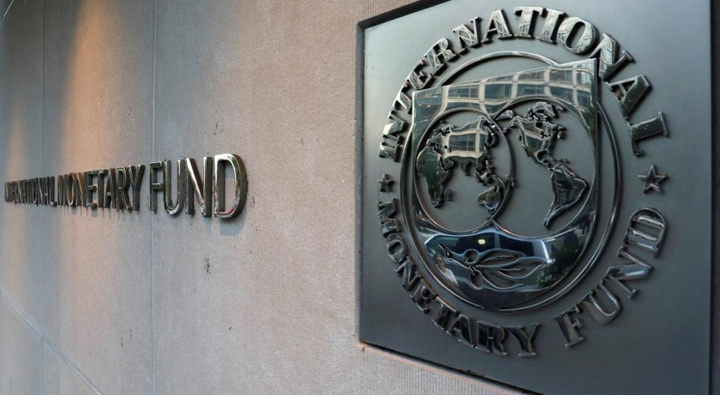The International Monetary Fund (IMF) paints a cautiously optimistic picture of the global economy’s trajectory, projecting a decline in global inflation to 4.2% in 2025. This easing of inflationary pressures represents a significant step towards recovery after the tumultuous period marked by the COVID-19 pandemic and the war in Ukraine. The convergence towards pre-pandemic stability is driven by the normalization of monetary policies by central banks worldwide, working to restore equilibrium to the global economic system. While the global growth rate is expected to hold steady at a modest 3.3% in both 2024 and 2025, this represents a return to potential growth levels, albeit significantly weakened compared to the pre-pandemic era. The receding inflation, projected to further decline to 3.5% in 2026, signifies a return to central bank targets, enabling a continued normalization of monetary policy.
The IMF’s forecast signals the gradual waning of economic challenges triggered by the global health crisis and geopolitical tensions. The predicted decline in inflation represents the end of a period of historically high inflation rates, driven by supply chain disruptions and surging energy prices, marking a return to more stable price levels. This positive trajectory allows central banks to further refine and adjust monetary policies, contributing to overall economic stability. The normalization of monetary policies is crucial for sustainable long-term economic growth, preventing overheating and ensuring a balanced approach to economic management.
Despite the positive overall outlook, the IMF acknowledges the growing economic divergence across nations. This divergence is particularly pronounced between advanced and emerging markets, creating a complex and uneven global economic landscape. Advanced economies, particularly the United States, are experiencing stronger-than-expected growth, fueled by robust domestic demand and a dynamic business environment. Conversely, the Euro area faces persistent challenges, with modest growth projections hampered by weak consumer confidence and the lingering effects of high energy prices. This disparity highlights the uneven impact of global economic forces and the need for tailored policy responses.
The United States is experiencing robust growth, with its 2025 projection revised upwards to 2.7%. This economic dynamism stems from resilient domestic demand, indicating strong consumer spending and investment activity. The favorable business environment, particularly in the thriving technology sector, further contributes to the positive growth outlook. This contrasts sharply with the Euro area’s projected 1% growth, where weak consumer confidence and elevated energy costs continue to act as drags on economic activity. The divergence underscores the importance of addressing region-specific challenges to ensure a more balanced global recovery.
Emerging markets, a diverse group of economies, are projected to maintain broad stability with a 4.2% growth forecast for 2025. However, they continue to grapple with challenges related to trade uncertainties and fluctuating policy landscapes. As these uncertainties dissipate, the IMF anticipates a gradual pickup in economic activity in these markets. China, a key driver of global growth, is projected to rebound with a 4.5% growth rate, aided by the easing of trade and policy uncertainties. This recovery in China, the world’s second-largest economy, is a significant factor in the projected global growth trajectory.
While the IMF’s outlook is broadly positive, it includes a cautionary note regarding potential disruptions. Policy shifts, particularly in the United States, could impact the 2025 inflation prediction and the overall global economic outlook. Fiscal measures, while potentially beneficial in the long run, may exert upward pressure on inflation in the short term, posing a risk to the current path towards stability. Despite these potential headwinds, the global economy appears to be on a trajectory towards greater stability, with inflation gradually subsiding and economic activity steadily improving across most regions. The IMF underscores the importance of continued careful monitoring and policy adjustments to navigate these complexities and maintain a sustainable recovery path.














